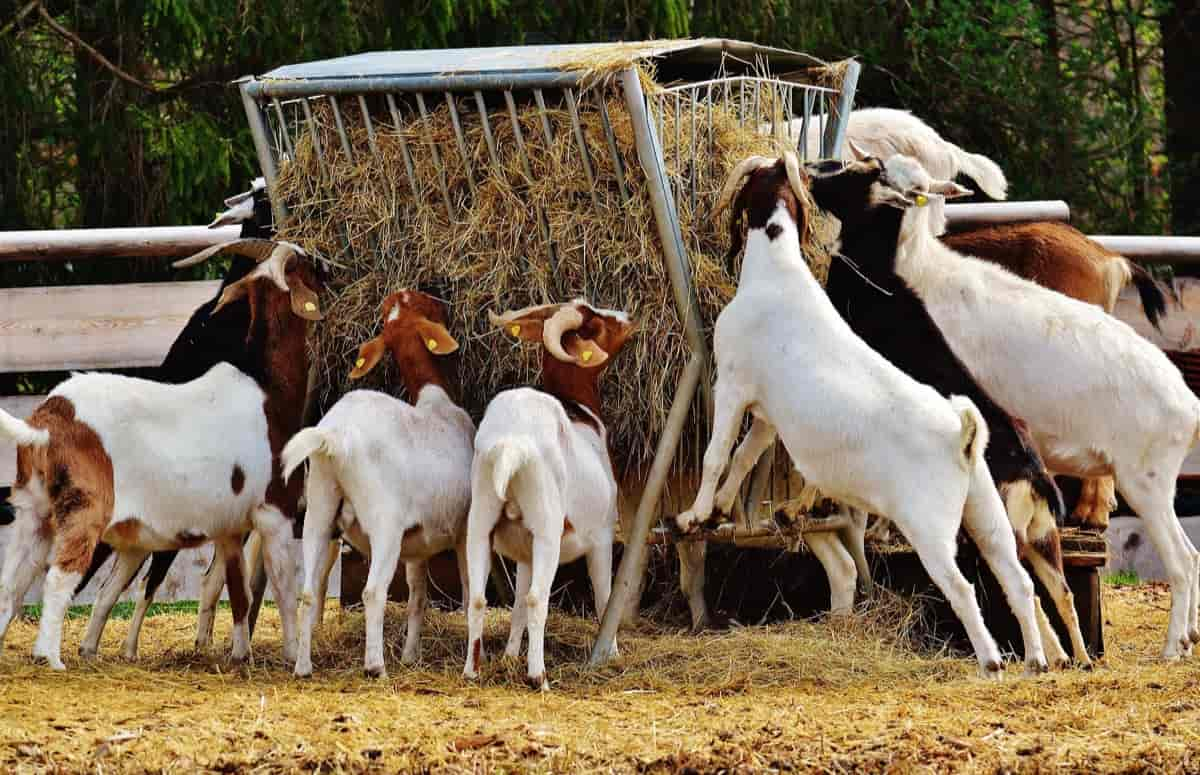
Raising livestock, whether it be cattle, goats, or any other type of animal, is a fascinating endeavor that has been a part of human civilization for centuries. It not only provides sustenance and economic opportunities but also allows individuals to connect with the rhythms of nature and cultivate a deep sense of responsibility towards these living creatures. From the daily routines of feeding and caring for their animals to the joy of witnessing new life during birthing seasons, there is an indescribable bond that forms between livestock and their owners. But there is much more to raising livestock than meets the eye. In this article, we will explore 18 fascinating facts about raising livestock that will enlighten and inspire anyone interested in this lifestyle. So, buckle up and get ready to delve into the wonderful world of animal husbandry!
Key Takeaways:
- Raising livestock, like cattle and goats, is super important for food and money. They’re versatile animals that help the environment and make people happy. It’s hard work, but it’s worth it!
- Livestock farming isn’t just about meat and milk. It’s also about helping the earth, making friends with animals, and creating jobs in rural areas. It’s a fascinating and vital part of our lives!
Livestock play a crucial role in agricultural economies.
Raising livestock, such as cattle and goats, is an integral part of many agricultural communities worldwide. The production of meat, milk, and other by-products contribute significantly to both food security and economic stability.
Livestock are versatile animals.
From providing meat and dairy products to producing wool, leather, and even manure for fertilizing crops, livestock serve a multitude of purposes. Their versatility makes them valuable assets for farmers and homesteaders.
The global demand for livestock products is steadily increasing.
As the population continues to grow, the demand for meat, milk, and other livestock products rises as well. This demand drives innovation and advancements in livestock management practices.
Livestock are raised in various environments.
Whether it’s the vast grasslands where cattle roam freely or the rugged mountains where goats find their footing, livestock adapt to different environments and climates, showcasing their resilience.
Animal husbandry plays a critical role in livestock care.
Proper animal husbandry practices, including nutrition, healthcare, and housing, ensure the well-being and productivity of livestock. Farmers and herders continuously learn and implement modern techniques to improve livestock management.
Raising livestock can be a sustainable practice.
By implementing sustainable farming methods like rotational grazing and organic feed, farmers can minimize the environmental impact of livestock production, leading to a more sustainable and eco-friendly approach.
Livestock contribute to biodiversity conservation.
Raising heritage livestock breeds helps preserve genetic diversity and fosters the conservation of endangered species. These breeds often possess unique traits that make them valuable for future agricultural needs.
Livestock can provide emotional support.
Animals have a remarkable ability to form bonds with humans, and many people find solace and companionship in raising livestock. Their presence can have a positive impact on mental health and well-being.
Livestock can be used for therapy.
Animal-assisted therapy involving interactions with livestock has been shown to have therapeutic benefits for individuals with various physical, emotional, and developmental challenges.
Livestock farming contributes to rural development.
Raising livestock provides employment opportunities, especially in rural areas, stimulating economic growth and reducing poverty levels. It is a vital source of livelihood for many communities worldwide.
Livestock can be raised on small-scale farms.
You don’t need vast acreage to raise livestock. Small-scale farms can successfully raise a few animals, providing a sustainable source of food and income.
Livestock animals have different social structures.
Cattle and goats, for example, have distinct social hierarchies within their herds. Understanding these dynamics helps farmers manage their livestock more effectively.
Livestock require proper nutrition and a balanced diet.
Feed quality and nutrition are essential for the health and productivity of livestock. A properly balanced diet ensures optimal growth, reproduction, and overall well-being.
Livestock waste can be utilized as fertilizer.
The manure produced by livestock is a valuable resource for farmers. When properly managed, it can be used as organic fertilizer, enriching the soil and promoting healthy crop growth.
Livestock farming involves continuous learning and innovation.
Farmers constantly strive to improve their livestock management practices. Advancements in technology and research contribute to the ongoing development of more efficient and sustainable farming methods.
Livestock can be raised using organic practices.
Organic livestock farming prioritizes animal welfare, natural feed sources, and the avoidance of synthetic chemicals, antibiotics, and hormones. It supports environmentally friendly and sustainable agricultural systems.
Animal welfare is a significant aspect of livestock farming.
Farmers and producers are increasingly adopting practices that prioritize the well-being of their livestock, ensuring comfortable housing, access to clean water, and proper veterinary care.
Raising livestock requires dedication and hard work.
Successfully raising livestock demands commitment, patience, and a deep understanding of the animals’ needs. It is a labor-intensive endeavor that fosters a bond between farmers and their livestock.
Conclusion
Raising livestock, whether it’s cattle or goats, is a fascinating endeavor that comes with its own set of challenges and rewards. Through this article, we have explored 18 intriguing facts about the world of livestock farming. From the impact of livestock on the environment to the various breeds and their unique characteristics, there is so much to learn and appreciate about this aspect of the agricultural industry.
As you delve into the world of raising livestock, it’s important to continually educate yourself and stay up-to-date with best practices and advancements in the field. Whether you are a seasoned farmer or just starting out, always prioritize the health and well-being of your animals, while also considering sustainable and ethical approaches to farming.
Remember, raising livestock is not only about the final product but also about nurturing and caring for these animals who play a vital role in our lives. So, embrace the journey, seek knowledge, and continue to explore the endless possibilities that come with raising livestock.
FAQs
1. What are the key considerations when starting a livestock farm?
Starting a livestock farm requires careful planning and consideration. Some key considerations include selecting the right breed, ensuring proper housing and pasture, managing nutrition, and having a solid understanding of veterinary care.
2. How much space is needed for raising livestock?
The amount of space needed varies depending on the type of livestock and their specific requirements. General guidelines suggest providing enough space for animals to move comfortably, have access to clean water and food, and engage in their natural behaviors.
3. How can I ensure the health and well-being of my livestock?
To ensure the health and well-being of your livestock, it is important to provide a balanced diet, regular veterinary care, proper shelter and bedding, clean water, and a safe and secure environment. Monitoring for signs of illness and addressing any issues promptly is also crucial.
4. What are some common challenges in raising livestock?
Common challenges in raising livestock include disease outbreaks, managing feed costs, weather-related issues, and predator control. Effective planning, proactive measures, and continuous learning can help mitigate these challenges.
5. Are there any sustainable and ethical practices in livestock farming?
Yes, there are sustainable and ethical practices in livestock farming. These include implementing rotational grazing, using organic feed and natural supplements, minimizing the use of antibiotics and hormones, and providing adequate space for animals to express natural behaviors.
6. What are the economic benefits of raising livestock?
Raising livestock can provide various economic benefits, including a potential source of income through selling meat, milk, or other livestock products. Additionally, livestock farming can contribute to job creation, local economies, and the sustainability of rural communities.
Raising livestock offers numerous benefits and plays a vital role in our world. Beyond these fascinating facts, consider exploring the intriguing world of Harvest Moon, where you can uncover surprising details about this beloved video game series. For those seeking personal growth, our collection of self-help books for men provides valuable insights and guidance to help you navigate life's challenges. Whether you're a gaming enthusiast or looking to improve yourself, these articles offer a wealth of knowledge waiting to be discovered.
Was this page helpful?
Our commitment to delivering trustworthy and engaging content is at the heart of what we do. Each fact on our site is contributed by real users like you, bringing a wealth of diverse insights and information. To ensure the highest standards of accuracy and reliability, our dedicated editors meticulously review each submission. This process guarantees that the facts we share are not only fascinating but also credible. Trust in our commitment to quality and authenticity as you explore and learn with us.


